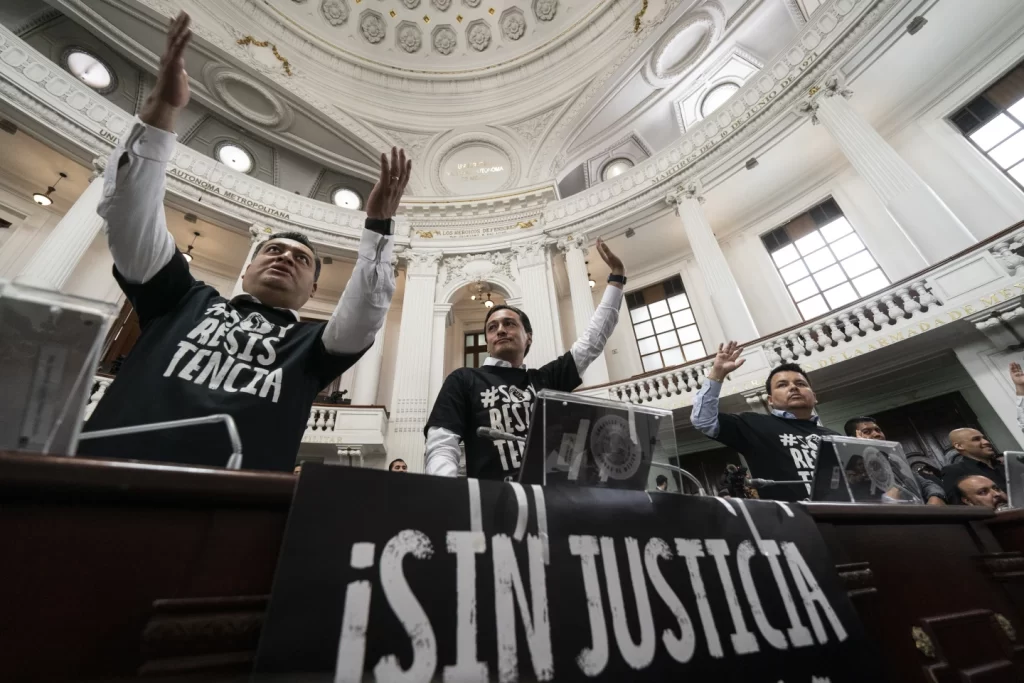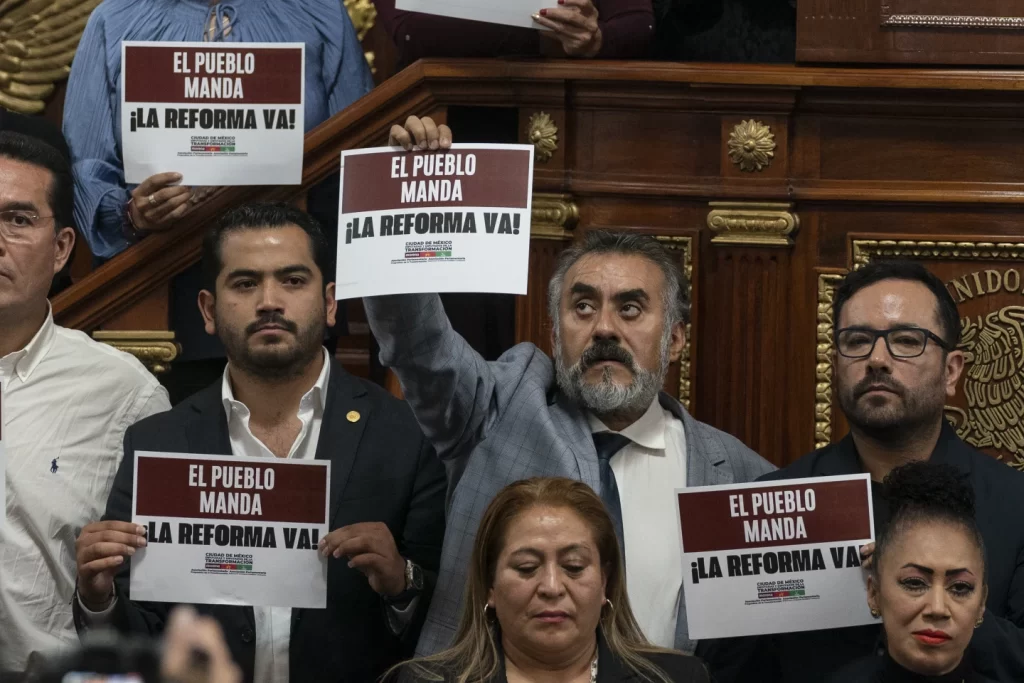Mexico stands on the brink of a significant constitutional change this weekend as it prepares to amend its foundational document to require all judges to be elected, a move that has sparked intense debate and protests across the nation.

President Andrés Manuel López Obrador announced Thursday that he plans to sign and publish the constitutional change on Sunday, coinciding with Mexico’s Independence Day celebrations. The amendment, which has already passed Mexico’s Congress and been ratified by the required majority of state legislatures, represents a cornerstone of López Obrador’s judicial overhaul agenda.
“It’s an incredibly important reform, reaffirming that in Mexico there is authentic democracy,” López Obrador stated during his morning news briefing. “The people electing their representatives, electing their public servants in all three branches, that is democracy.”

The reform has moved swiftly through Mexico’s political institutions. After passing the Senate in a contentious early morning session on Wednesday, following protests that briefly disrupted proceedings, the amendment had already secured ratification from 18 of Mexico’s 32 state legislatures by Thursday.
López Obrador and his supporters argue that the overhaul is necessary to combat corruption within a judicial system widely perceived as broken by many Mexicans. The president contends that elected judges will be more accountable to the people they serve.
However, the proposed changes have met with fierce opposition from legal experts, opposition parties, and international observers. Critics warn that the reform could severely undermine Mexico’s democracy by potentially stacking courts with judges loyal to the ruling Morena party, which currently holds significant majorities in both houses of Congress and the presidency following substantial electoral victories in June.

Concerns have been raised about the potential for this reform to weaken the system of checks and balances crucial to democratic governance. Some fear that elected judges might be more susceptible to influence from powerful criminal organizations, including drug cartels, thus compromising the integrity of the judicial system.
The controversy has sparked weeks of strikes and protests by judicial employees, law students, and citizens concerned about the implications for Mexico’s rule of law. Dramatic scenes unfolded in the Senate on Tuesday when protesters stormed the chambers in a last-ditch effort to block the proposal, forcing senators to relocate to pass the measure.

International legal bodies and human rights organizations have expressed alarm at the speed and scope of the reforms. They warn that politicizing the judiciary could lead to a erosion of judicial independence, a cornerstone of democratic societies.
As López Obrador prepares to leave office on September 30, the judicial overhaul appears set to become a defining part of his legacy. The timing of the signing on Independence Day is seen by many as a symbolic gesture, underlining the president’s view of the reform as a patriotic act.
The implementation of this constitutional change will likely face significant challenges in the coming months and years. Legal challenges are expected, and the practical aspects of transitioning to an elected judiciary remain unclear.
As Mexico moves forward with this unprecedented change to its judicial system, the world watches closely. The outcome of this reform could have far-reaching implications not only for Mexico’s legal landscape but also for its standing as a democratic nation in the international community.



